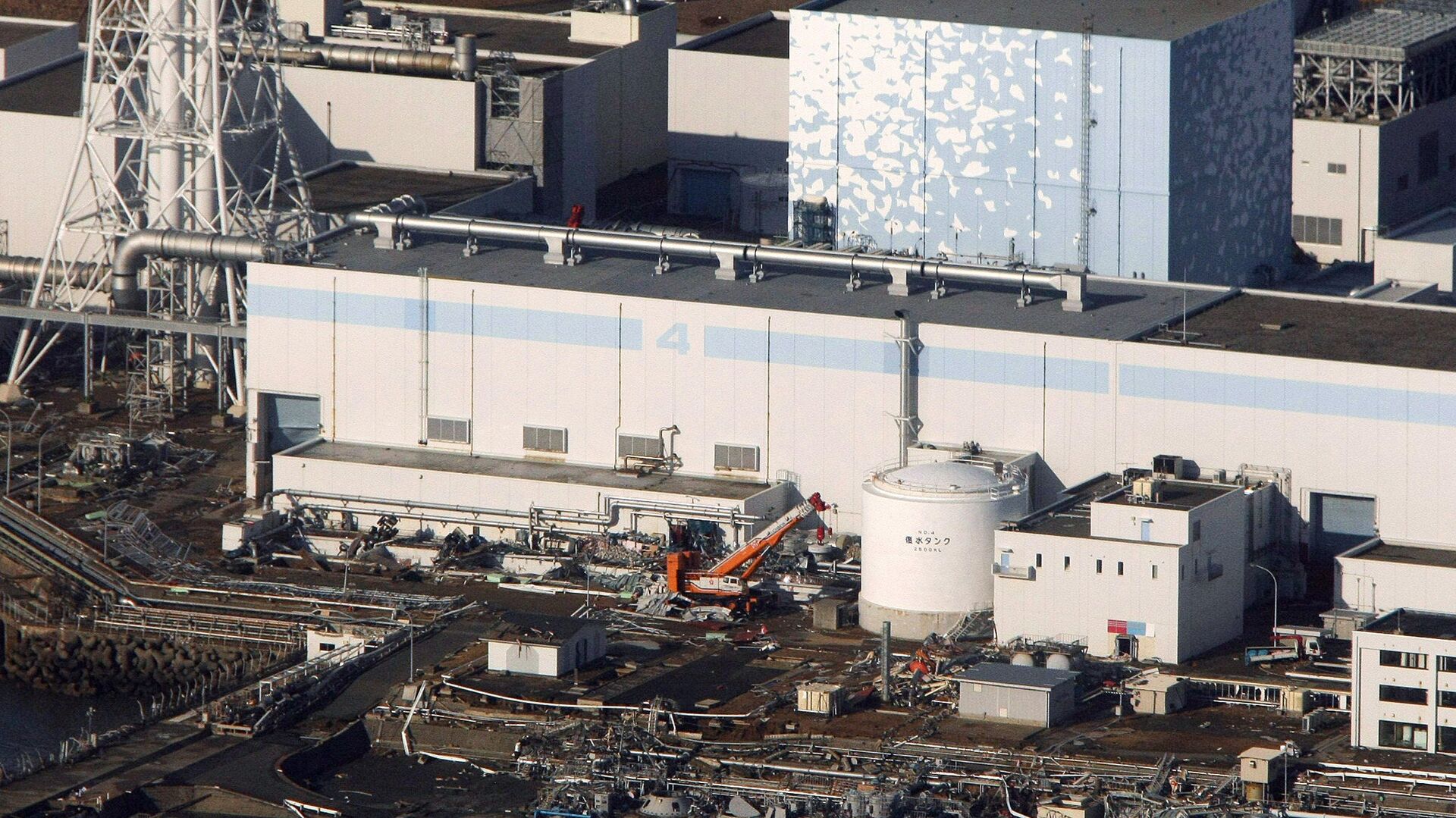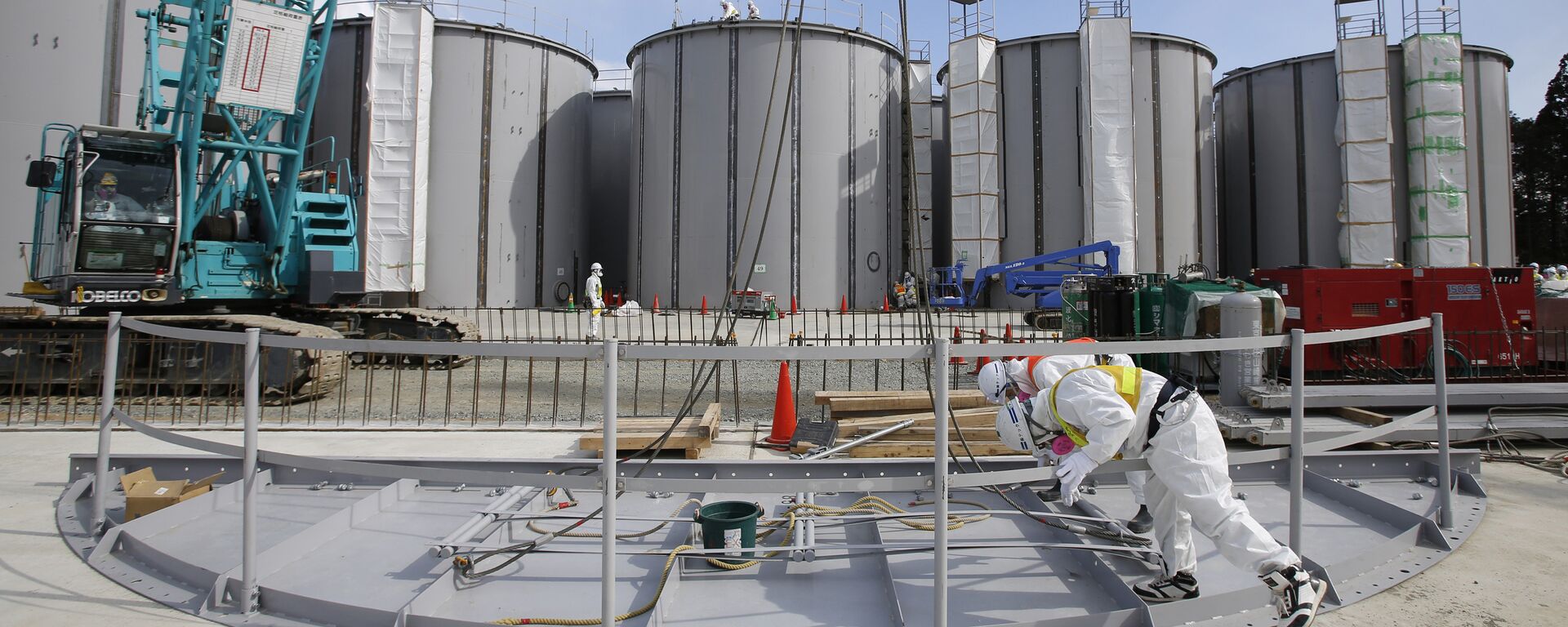https://sputnikglobe.com/20230807/japan-planning-fukushima-water-discharge-between-late-august-early-september-1112433914.html
Japan Planning Fukushima Water Discharge Between Late August, Early September
Japan Planning Fukushima Water Discharge Between Late August, Early September
Sputnik International
Japan is planning to start the release of treated radioactive water from the Fukushima nuclear power plant into the sea between late August and early September after Prime Minister Fumio Kishida returns from a trilateral summit with the US and South Korean leaders, Japanese a news agency reported on Monday.
2023-08-07T08:40+0000
2023-08-07T08:40+0000
2023-08-07T08:40+0000
asia
nuclear power plant
fukushima daiichi nuclear power plant
fukushima
2011 fukushima disaster
nuclear disaster
japan
fumio kishida
https://cdn1.img.sputnikglobe.com/img/105244/81/1052448123_0:196:2501:1602_1920x0_80_0_0_dad987cfa2166ba0fdc256ff55070254.jpg
Kishida is expected to discuss the water discharge plan with US President Joe Biden and their South Korean counterpart, Yoon Suk-yeol, during the summit on August 18 at the Camp David presidential residence in Maryland, 62 miles northwest of Washington, the media said. The Japanese prime minister will hold a meeting with relevant Japanese ministers after his return from the summit on August 20 to appoint a date of the water discharge, the agency added. Japan initially planned to begin discharging water purified of all radionuclides except tritium into the ocean 0.6 miles from the station this spring. However, the deadline was pushed back to the summer of 2023 due to adverse weather conditions and other factors. The Fukushima nuclear disaster occurred on March 11, 2011. The plant was severely damaged by a magnitude 9 earthquake in the Pacific Ocean. This triggered a massive tsunami that hit the plant and caused three nuclear reactors to melt down. The accident is considered the worst nuclear disaster since the Chernobyl accident in 1986 and has resulted in widespread contamination of local soil and water. The disaster left 22,200 people dead or missing.
https://sputnikglobe.com/20230712/truth-behind-hastily-released-iaea-report-on-japans-radioactive-water-dumping-plan-revealed-1111828075.html
fukushima
japan
Sputnik International
feedback@sputniknews.com
+74956456601
MIA „Rossiya Segodnya“
2023
Sputnik International
feedback@sputniknews.com
+74956456601
MIA „Rossiya Segodnya“
News
en_EN
Sputnik International
feedback@sputniknews.com
+74956456601
MIA „Rossiya Segodnya“
Sputnik International
feedback@sputniknews.com
+74956456601
MIA „Rossiya Segodnya“
fukushima, fumio kishida, fukushima disaster, nuclear disaster, yoon suk yeol, joe biden, japanese minister, nuclear plant, nuclear power plant, water discharge, japan
fukushima, fumio kishida, fukushima disaster, nuclear disaster, yoon suk yeol, joe biden, japanese minister, nuclear plant, nuclear power plant, water discharge, japan
Japan Planning Fukushima Water Discharge Between Late August, Early September
MOSCOW (Sputnik) - Japan is planning to start the release of treated radioactive water from the Fukushima nuclear power plant into the sea between late August and early September after Prime Minister Fumio Kishida returns from a trilateral summit with the US and South Korean leaders, Japanese a news agency reported on Monday.
Kishida is expected to discuss the water discharge plan with US President Joe Biden and their South Korean counterpart,
Yoon Suk-yeol, during the
summit on August 18 at the Camp David presidential residence in Maryland, 62 miles northwest of Washington, the media said.
The Japanese prime minister will hold a meeting with relevant Japanese ministers after his return from the summit on August 20 to appoint a date of the water discharge, the agency added.
Japan initially planned to begin
discharging water purified of all radionuclides except tritium into the ocean 0.6 miles from the station this spring. However, the deadline was pushed back to the summer of 2023 due to adverse weather conditions and other factors.
The Fukushima nuclear
disaster occurred on March 11, 2011. The plant was severely damaged by a magnitude 9 earthquake in the Pacific Ocean. This triggered a massive tsunami that hit the plant and caused three nuclear reactors to melt down. The accident is considered the worst nuclear disaster since the Chernobyl accident in 1986 and has resulted in widespread contamination of local soil and water. The disaster left 22,200 people dead or missing.



